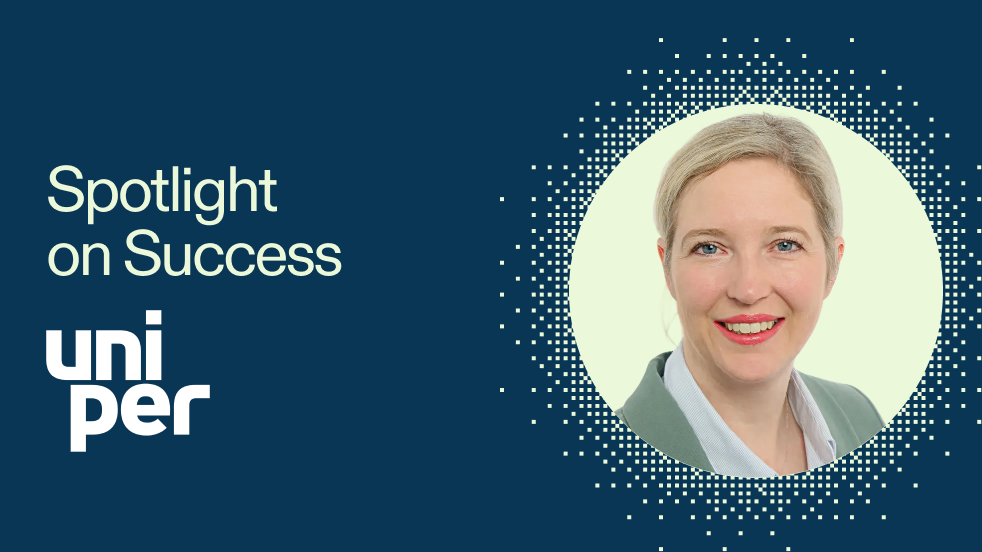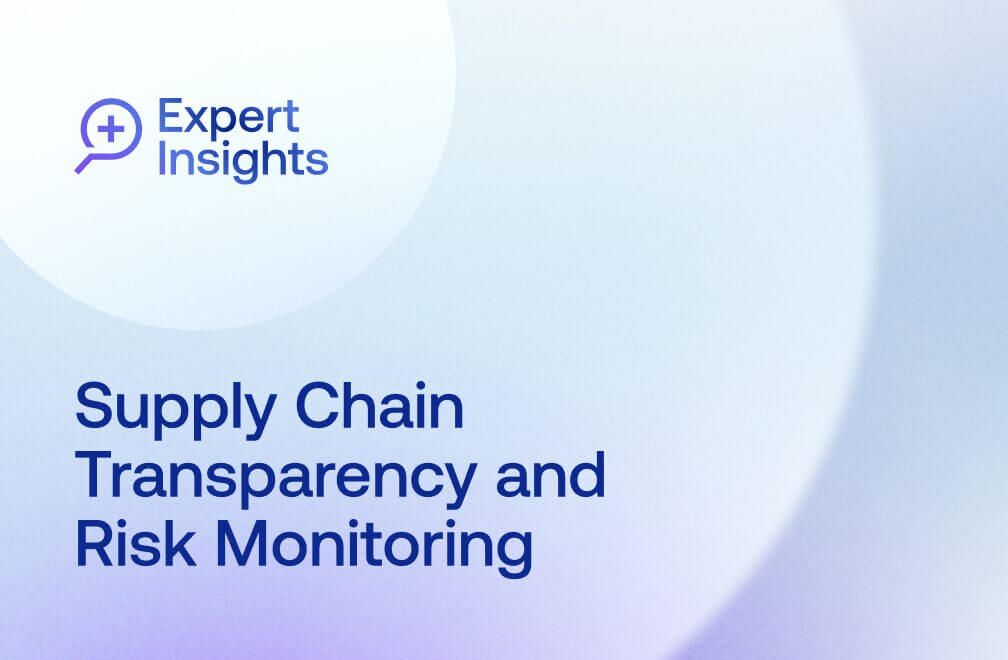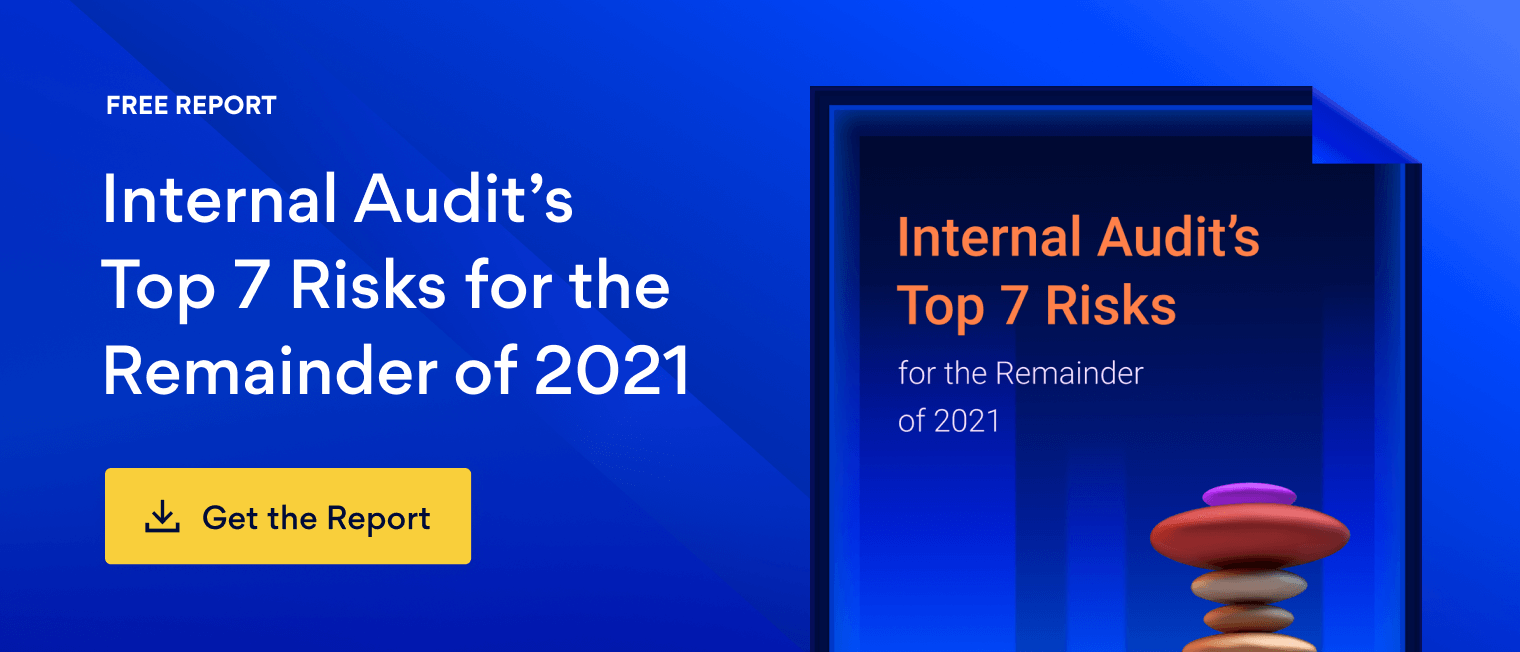
September 29, 2021 • 6 min read
Agents of Change: Shannon Urban of Hasbro, Inc.
Join Richard Chambers for a new episode of his Agents of Change video series, featuring conversations with internal audit leaders from some of the world’s most prominent organizations about innovation in the profession.
In this episode, Richard sits down with Shannon Urban, Vice President and Chief Audit Executive at Hasbro, Inc., to discuss how internal audit can think innovatively and transform to meet the changing needs of their stakeholders and organizations, including:
- Taking advantage of cross-organizational perspective to offer guidance on mission-critical areas.
- Speaking the language of the business to change outdated perceptions of internal audit.
- Cultivating savviness to rally people and resources for transformative change.
- Making internal audit indispensable by translating data into insight and foresight to help drive business decisions.
Watch the full conversation, and read the can’t-miss highlights below.
Cross-Org Perspective & Access Positions IA as Effective Change Agents
Richard Chambers: Shannon, I authored a book on Agents of Change: Internal Auditors in an Era of Disruption. I think we can certainly agree that we have been in a period of disruption now for a number of years and it’s what makes things exciting for us as internal auditors, would you agree?
“Shannon Urban: Yes, and one of the reasons I’ve stayed in internal audit as long as I have is that I’m constantly faced with challenges and learning new things. It does keep things exciting.”
Richard Chambers: I had a similar experience earlier in my career. I once took a short hiatus from internal audit in an accounting role, and I nearly died of boredom. I wanted to get back into internal audit where I could get my fingers on so many different things. In the book, I defined agents of change as those internal auditors who are catalysts for ideas that help transform and improve the business. Is that how you would define an agent of change, and what’s your view about internal auditors being in an influential position to foster change?
“Shannon Urban: I think internal auditors are actually uniquely positioned to be great agents of change across our organizations. We have this purview that gives us cross-organizational perspective. We’re regularly interacting at the highest levels of the organization. We’ve got unfettered access and license to, quite honestly, question and provide our thoughts on areas that are mission critical to the business.”
Change Agents Speak the Language of the Business
Richard Chambers: You have a unique perspective, I’m sure, because of all of the folks we’re interviewing for this series, you’ve spent a longer time in client service and probably had the chance to touch more internal audit functions than everyone else combined. My question to you is, from your experience, not just where you are now, but across those years of working in client service at EY, does management and the board believe that internal auditors should be agents of change?
“Shannon Urban: One of the reasons I stayed in consulting for so long was the opportunity to interact with, learn from, and work with so many amazing companies. Based on my experience, I think management and boards value internal audit. The one challenge I see is that they expect us to show up a certain way. They expect us to come in and tell them everything they’ve done wrong. It was a very old school view, based on their past experiences.”
Transforming to Meet the Needs of Our Stakeholders and Organizations
Richard Chambers: Now, in the book, I argue that before internal auditors can be seen as credible change agents in their organizations, they have to be willing to look at internal audit itself and implement transformative change where needed. Do you agree with that, and what are the areas that you think are the most ripe for enhancement in an internal audit function?
“Shannon Urban: Richard, I completely agree. I’ve been saying this for a long time, just like it’s an imperative for the business to continually stay on top of change that’s impacting them and the need to adapt to meet the market, customer needs, increased competition, whatever the driver is — so do we, as internal audit, need to transform to meet the needs of our stakeholders and our organizations. We need to be innovative. We need to be thinking differently than we have before.”
Thinking Innovatively about Leveraging Powerful Tech Capabilities in Audit
Richard Chambers: Yes, you mention technology and certainly that’s a very important capacity multiplier that makes internal audit more efficient and effective. Are there any practices you’ve seen that really stand out from your years working with internal audit functions? What areas do you think are the most powerful for internal auditors to be looking at?
“Shannon Urban: I think we can all agree that the power of data and being able to access data and turn that into information is an added capability for internal audit. We’re very used to only seeing a sample of the population, or a small subset of transactions across the business. When you can grasp all of that data and look at it holistically over not just three months or a year, but three years, multiple years — bringing all that together, it’s incredibly powerful. The data tells you a story about what’s happening across the organization, and if things are working the way they’re supposed to or not. That ability to do data mining, and even process mining, leveraging the capabilities in technology today is powerful. We’re not there yet at Hasbro, but we realize that that’s something we need to invest in over the short-term, pretty quickly.”
Savviness Is a Key Attribute for Change Agents to Get Things Done
Richard Chambers: For the book, we reached out to chief audit executives like yourself to ask what are some of the attributes that they bring to the table? We narrowed it down to four broad attributes that powerful change agents share: business acumen, strategic mindset, innovative, and relationship-centric. Is that a list that resonates with you, and are there other things that you might add to it?
“Shannon Urban: Yeah, I think those are absolutely four characteristics that anyone who wants to be a change agent needs. Change agents generally need to think like executives. We need to speak the language of the business. You need to make investments in relationships to be good business partners and constantly approach things with an eye toward, “what is the opportunity for change within the organization?””
Collaboration Boosts Internal Audit and the Organizational Success
Richard Chambers: One of the things that I recall from our years working together over at The IIA was that you were a huge proponent of collaboration — to borrow a phrase out of The IIA’s current Three Lines guidance, independence doesn’t mean isolation. I recall that your proponency of internal audit collaborating with the other lines created a powerful alliance that could benefit the organization. Any additional insights you might share, and do you think collaboration is important to be effective as a change agent?
“Shannon Urban: Collaboration is critical, and I was very fortunate to be a member of the working group on the refresh of the Three Lines of Defense model. One of the things that we constantly talked about was, while it’s important for internal audit to be independent and objective, that doesn’t mean we operate in a bubble and don’t talk to anyone or don’t coordinate with anyone else across the organization. In fact, we’re better at what we do in internal audit when we have those relationships and when we do work with others. And the general reality is, for many internal audit functions, **we can’t cover all the risks we want to, and so we need to rely on others. **”
Translating Data into Insight and Foresight for the Business
Richard Chambers: It’s not uncommon that I get asked, and I have over the years more times than I can remember, what do I see in the future for internal audit? And if I were to ask you to pull out your crystal ball and talk about what the challenges and opportunities are for the next 10 years for this profession, what would be the things that jump to mind?
“Shannon Urban: The biggest challenge that we’re going to face will be staying ahead of risk. We have to build a core competency across all levels in internal audit to be able to constantly pull in data, external and internal information, insights, thought leadership, studies, you name it — and really analyze, understand, digest: what are those trends, those activities, whatever’s happening out there in the world.How is that going to impact our organization? And then helping to make sure that the organization’s paying attention to that as well.”
Stay tuned for more Agents of Change episodes featuring conversations about innovation in internal audit with forward-thinking leaders from some of the world’s most prominent organizations.
You may also like to read


How Uniper achieves greater audit transparency and impact

How Snowflake Uses Continuous Monitoring to Proactively Identify Risk

Enterprise e-commerce company transforms audit planning with Grant Thornton and AuditBoard

How Uniper achieves greater audit transparency and impact

How Snowflake Uses Continuous Monitoring to Proactively Identify Risk
Discover why industry leaders choose AuditBoard
SCHEDULE A DEMO




